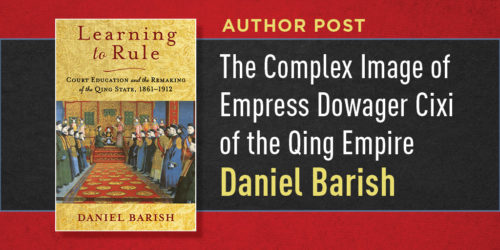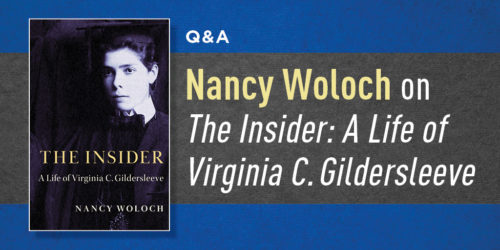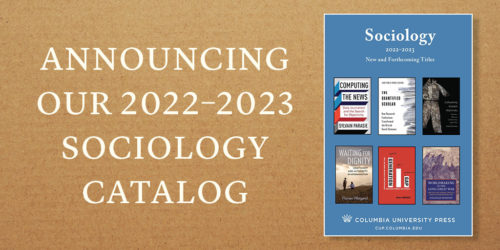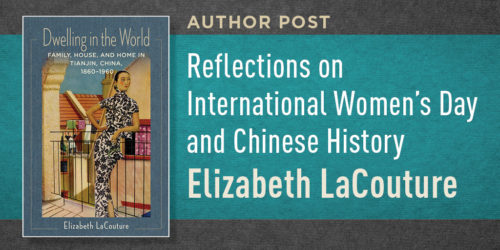Dr. Katie Gaddini on The Struggle to Stay: Why Single Evangelical Women Are Leaving the Church
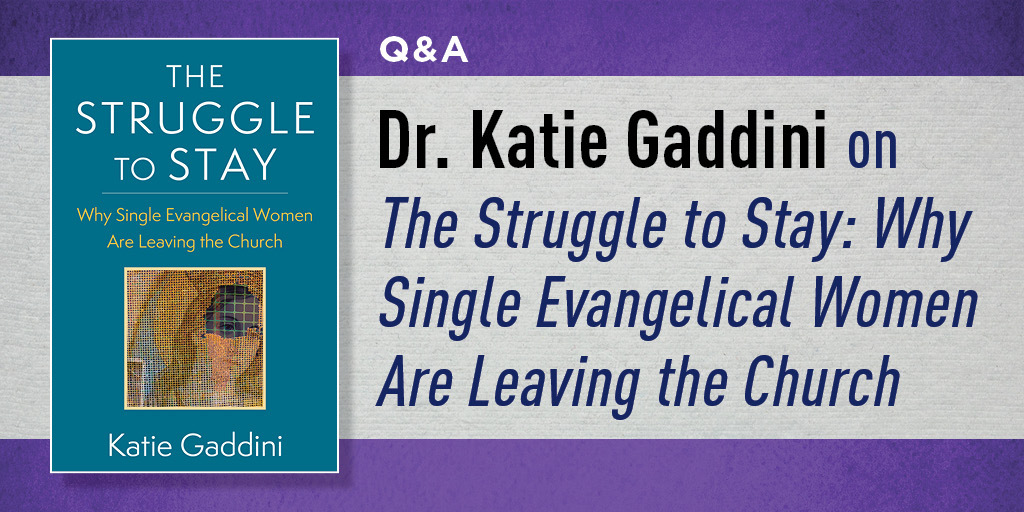
Evangelical Christianity is often thought of as oppressive to women, yet more than thirty million women in the United States identify as evangelical. The Struggle to Stay: Why Single Evangelical Women Are Leaving the Church offers an intimate and insightful portrait of single women’s experiences in evangelical churches. But what inspired Katie Gaddini to study evangelical women in the first place? In this Q&A, Gaddini opens up about how purity culture sparked her research, why she broadened the scope of her work, and what led her to interweave her personal story into the narrative.
Q: What made you decide to study single evangelical women?
Katie Gaddini: The idea actually came to life at my niece’s first birthday party. My female cousins and I were sitting around the pool at my sister’s house talking about purity culture. All of us had grown up in evangelical Christianity and our fathers were pastors. Through this conversation, and others I later had with my sister, I realized that there needed to be a deeper exploration of how single Christian women navigated sexual purity as they grew older. The teachings on sexuality that we received as pre-teens and teens were very age specific. Did they still hold for women in their thirties and forties? Dating has also transformed so much over the past ten years, and I wondered how women balanced the church’s messages on purity with a rapidly changing dating culture.
Q: But your book isn’t just about dating and purity culture—it’s about single women’s experiences in the church overall. What shifted, and why did you broaden the focus?
Gaddini: You’re right. I began my doctoral research focused on single Christian women and purity culture. However, once I was deep into fieldwork, I quickly realized that other issues were much more important to women. As women age, and/or they aren’t actively dating, matters such as women in church leadership take center stage. I had to revise and widen my original thesis to capture the topics and aspects of women’s lives that are salient to them in our moment and at different stages of their lives, not just what I thought was interesting as a researcher.
Q: It’s an interesting decision to include your own personal story in an academic book. Why did you make this choice? Was it deliberate?
Gaddini: I really shied away from including my own history as a single woman in evangelical Christianity when I first started writing up my research. At one meeting with my PhD supervisor, she asked why I was completely absent from the text. The answer, of course, was that it was uncomfortable. Nevertheless, I heeded her advice (as an experiment more than anything), and little by little brought bits of my story—and myself—into the analysis. When it came time to write my book, I wanted to pull even more of my story to the surface, to join the women that I am writing about, and to say that I am them too. I think all good research acknowledges the researcher’s positionality and their relationship to the material they’re writing about. The Struggle to Stay is also an experiment with form, as it occupies a space between memoir, academic writing, and narrative storytelling.
Q: When non-religious people think of evangelicals these days, the impression is not necessarily a positive one. What would you say to secular readers who are interested in your book?
Gaddini: There is a section in my book where I mention the negative reactions I had from colleagues, friends, and acquaintances when I told them about my research topic. In one encounter, an acquaintance, a man who studied religion, asked what I was writing about. At the time, I was working through my chapter on how evangelical women fuse faith and feminism. He started uproariously laughing when I said this. I paused, confused by his reaction. Then he told me that “Christian feminist” was an oxymoron—the two simply could not go together. This response stunned me; not only for its ignorance, but also because it is such a reductive opinion of religious women. What I hope this book communicates to readers is that Christian women live very full lives. They wrestle with and sometimes doubt their faith; at the same time, many find tremendous joy and freedom in their relationship to God.
Q: What are you working on now? Any ideas for your next book?
Gaddini: The Struggle to Stay is deeply personal—both due to my own history in Christianity but also the intensity involved with ethnographic research. I’ve now turned my attention to a topic that feels one step removed: Christianity and politics in the United States. It’s an area of scholarship I have wanted to pursue for a long time, but something inside me needed to write the personal story first, needed to get it out of the way, so to speak. And I am now enjoying the experience of delving back into fieldwork once again.

